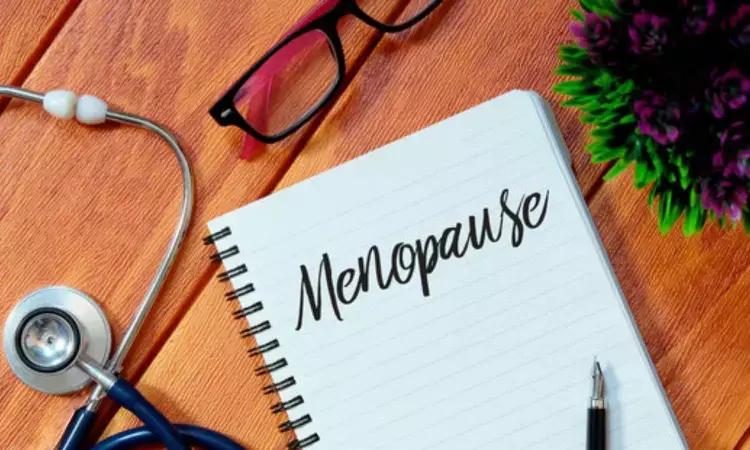- Home
- Medical news & Guidelines
- Anesthesiology
- Cardiology and CTVS
- Critical Care
- Dentistry
- Dermatology
- Diabetes and Endocrinology
- ENT
- Gastroenterology
- Medicine
- Nephrology
- Neurology
- Obstretics-Gynaecology
- Oncology
- Ophthalmology
- Orthopaedics
- Pediatrics-Neonatology
- Psychiatry
- Pulmonology
- Radiology
- Surgery
- Urology
- Laboratory Medicine
- Diet
- Nursing
- Paramedical
- Physiotherapy
- Health news
- Fact Check
- Bone Health Fact Check
- Brain Health Fact Check
- Cancer Related Fact Check
- Child Care Fact Check
- Dental and oral health fact check
- Diabetes and metabolic health fact check
- Diet and Nutrition Fact Check
- Eye and ENT Care Fact Check
- Fitness fact check
- Gut health fact check
- Heart health fact check
- Kidney health fact check
- Medical education fact check
- Men's health fact check
- Respiratory fact check
- Skin and hair care fact check
- Vaccine and Immunization fact check
- Women's health fact check
- AYUSH
- State News
- Andaman and Nicobar Islands
- Andhra Pradesh
- Arunachal Pradesh
- Assam
- Bihar
- Chandigarh
- Chattisgarh
- Dadra and Nagar Haveli
- Daman and Diu
- Delhi
- Goa
- Gujarat
- Haryana
- Himachal Pradesh
- Jammu & Kashmir
- Jharkhand
- Karnataka
- Kerala
- Ladakh
- Lakshadweep
- Madhya Pradesh
- Maharashtra
- Manipur
- Meghalaya
- Mizoram
- Nagaland
- Odisha
- Puducherry
- Punjab
- Rajasthan
- Sikkim
- Tamil Nadu
- Telangana
- Tripura
- Uttar Pradesh
- Uttrakhand
- West Bengal
- Medical Education
- Industry
Fezolinetant Shows Promise in Alleviating Menopausal Vasomotor Symptoms

Menopausal vasomotor symptoms (VMS), including hot flashes and night sweats, can significantly impact the quality of life of women transitioning through menopause. Fezolinetant, a novel therapeutic agent, has shown potential in alleviating these bothersome symptoms. A recent meta-analysis aims to evaluate the efficacy and safety of fezolinetant in treating moderate-to-severe VMS and associated sleep disturbances in postmenopausal women.
VMS are common during menopause and can lead to discomfort, sleep disturbances, and decreased quality of life. Hormone therapy has traditionally been used to manage VMS, but concerns regarding safety have prompted the search for alternative treatments. Fezolinetant offers a promising option with its mechanism of action targeting neurokinin receptors. This study was published in the journal of Obstetrics and Gynaecology by Bonga K and colleagues.
A comprehensive literature search identified five randomized clinical trials comprising 2,168 participants that compared fezolinetant with placebo in postmenopausal women experiencing moderate-to-severe VMS. The efficacy and safety of fezolinetant were evaluated using various outcome measures, including VMS frequency, Menopause-Specific Quality of Life (MENQOL) scores, and sleep quality assessments.
The key findings of the study were:
• Fezolinetant demonstrated significant efficacy in reducing VMS frequency, with a pooled mean difference of 2.62 (95% CI, 1.84–3.41).
• The MENQOL scores also showed improvement with fezolinetant compared to placebo, with a pooled mean difference of −0.60 (95% CI, −0.92 to −0.28).
• Moreover, fezolinetant was associated with a mean percentage improvement in VMS frequency of 22.51% (95% CI, 15.35–29.67).
• Additionally, fezolinetant showed improvement in sleep quality compared to placebo.
This meta-analysis provides strong evidence supporting the efficacy of fezolinetant in reducing moderate-to-severe VMS frequency and improving sleep disturbances in postmenopausal women. Fezolinetant offers a promising alternative for women seeking relief from menopausal symptoms without the concerns associated with traditional hormone therapy. Further research and long-term safety evaluations are warranted to confirm these findings and establish fezolinetant as a standard treatment option for menopausal VMS.
Reference:
Bonga, K. N., Mishra, A., Maiti, R., Padhy, B. M., Meher, B. R., & Srinivasan, A. Efficacy and safety of fezolinetant for the treatment of menopause-associated vasomotor symptoms: A meta-analysis. Obstetrics and Gynecology,2024;143(3):393–402. https://doi.org/10.1097/aog.0000000000005508
Dr Riya Dave has completed dentistry from Gujarat University in 2022. She is a dentist and accomplished medical and scientific writer known for her commitment to bridging the gap between clinical expertise and accessible healthcare information. She has been actively involved in writing blogs related to health and wellness.
Dr Kamal Kant Kohli-MBBS, DTCD- a chest specialist with more than 30 years of practice and a flair for writing clinical articles, Dr Kamal Kant Kohli joined Medical Dialogues as a Chief Editor of Medical News. Besides writing articles, as an editor, he proofreads and verifies all the medical content published on Medical Dialogues including those coming from journals, studies,medical conferences,guidelines etc. Email: drkohli@medicaldialogues.in. Contact no. 011-43720751


